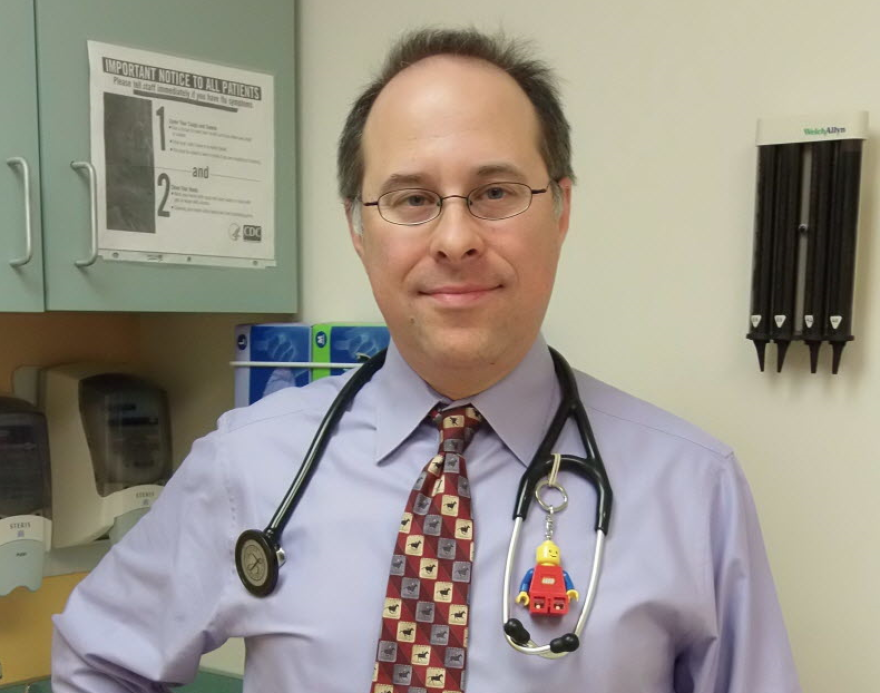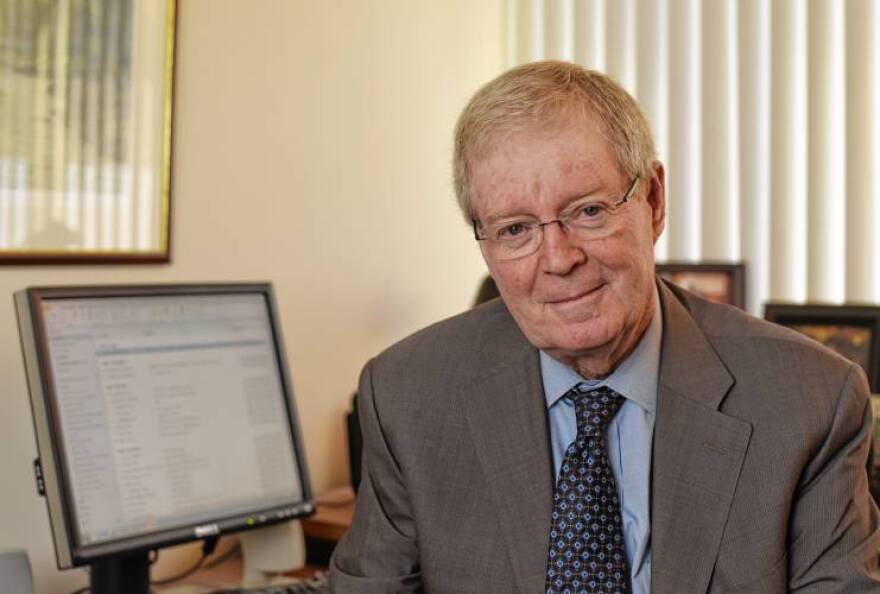Primary care doctors are supposed to be the first stop for the COVID-19 crisis. They're who you call if you have symptoms, partly to relieve pressure on hospitals.
But the pandemic has put immense financial strain on primary care practices.
In western Massachusetts, as elsewhere, they've made major changes in how they operate to ensure they can at least stay open until the worst has passed.
Once a week, the doctors at Amherst Pediatrics stand 6 feet apart in the hallway to discuss how to adapt to the COVID-19 crisis.
“And every time, we look back and think how strange it was that we were seeing something so different a week ago,” said Dr. John Snyder.
To limit exposure to the virus for both patients and providers, Snyder said they've stopped doing most well-visits, but they're still seeing children under 2 who need vaccines.
“We can't risk having outbreaks of vaccine-preventable diseases as a result of this,” he said.
Some injuries and illnesses need a face-to-face visit. That includes some potential coronavirus cases, which they see in the parking lot.
But like most practices right now, Snyder said the vast majority of "visits" are done by Zoom — and they're treating many fewer patients overall. Since insurers usually pay per patient visit, income has plummeted.

“Primary care has really suffered immensely under the COVID-19 pandemic,” said Russell Phillips, who runs the Center for Primary Care at Harvard Medical School.
Phillips has been hearing from struggling practices around the country who are trying to adapt both economically and with social distance in mind.
“Primary care has really converted to a virtual specialty almost overnight,” he said.
Pivoting to telemedicine
In Massachusetts, doctors' offices have quickly ramped up the technology that allows them to see patients through telemedicine.
“That’s an enormous kind of shift, because most of our work had been face-to-face,” said Joel Feinman, president of Valley Medical Group, which has offices around western Massachusetts. “It's always been that way. And that's the way the economic model works, too. We had to create [a telemedicine system] on the fly...in about a few days' time.”
Before COVID-19, Dr. Eric Churchill of Baystate Health's High Street Health Center estimates 2% of their visits were done over the phone or video. Now it's about 95%.
“I wouldn't have thought this was possible, but I feel like I've gotten very good at just hearing what someone with COVID[-19] sounds like over the telephone,” Churchill said.
Like many doctors, Churchill considers this pivot to telemedicine good for many patients in the long run.
“They don't have to spend half a day off of work or disrupt their family care needs,” he said. “And many of our patients have difficulty with transportation.”

Doctors say it took the pandemic to finally bring the technology up to speed, including integrating video calls with patient records.
Amherst Pediatrics is affiliated with Boston Children's Hospital, which — according to Snyder — had planned to roll out a telemedicine system over two or three years.
“They literally did in two weeks,” he said. “There are little glitches here and there, but we are full-on doing virtual medicine the way they envisioned it.”
'We keep the lights on solely by what we bring in.'
But the uptick in telemedicine does not make up for the drop in regular visits for primary care or specialists.
Although Massachusetts Gov. Charlie Baker has ordered insurers to pay for telemedicine the same way they pay for face-to-face visits, providers are wary.
Snyder said he expects some insurers will put limits on the price of more complicated televisits.
“They've already told us that they're not going to agree to reimburse at the higher levels that we might normally be reimbursed for,” he said.
Even with virtual visits, Snyder said his practice is only seeing a third the patients they normally do. So to balance the budget, he said both staff and doctors have reduced their hours by about 60%, with future layoffs possible.
“On some levels, we're no different than a small business in that we keep the lights on solely based on what we bring in,” he said.
The economics are grim across the country, according to the nonprofit Primary Care Collaborative. In a recent survey of medical practices, 43% said the COVID-19 crisis has caused severe strain on their offices, with the possibility they may need to shut down.

“We’re doing all the first steps one takes when you get this kind of an economic situation,” said Feinman of Valley Medical Group, which had to furlough some employees and is leaving other positions unfilled.
Feinman said his office also plans to apply for federal loans through the CARES Act to get through this period.
Massachusetts recently announced $800 million to help the health care industry, including a small share for physician groups.
But Feinman said he doesn’t want to count on that.
“Mostly we're redesigning what we're doing at the moment on the fly, to take care of this very present need,” he said.
'Where are people going to go [to the doctor] when this is over?'
While many practices hope to bounce back after the crisis, Phillips does worry about permanent losses. Primary care is already struggling to attract doctors, at a time when these medical gatekeepers are considered essential to the health care system.
“I think that there are many physicians who are older and potentially thinking about retirement,” Phillips said. “And this may be something that pushes them into retirement. So suddenly there are a smaller number of primary care physicians.”
The situation has also renewed talk about a better payment model that would make doctors less vulnerable to crises like COVID-19.
Single-payer is one model, where the government would oversee all billing. Short of that, instead of the current fee-for-service system, many doctors would prefer what's called "global payment." That means insurance companies would pay doctors according to their overall number of patients, even during slow periods.
“You're being paid to take care of the population, no matter how you see them,” said Feinman, “whether you see them in the office, you talk to them on the phone, you do telehealth, you do preventive care.”
Valley Medical Group used to be part of Kaiser Permanente, an HMO model where doctors are on salary, and patients get care within a coordinated system.
Feinman said that model would have protected his office economically during a crisis, while keeping patients covered. Kaiser left New England 20 years ago.
“That model made sense then. I think it makes sense now,” Feinman said. “But in a fee-for-service environment, which most of the country is, it's very hard to do that.”
Changing the payment system is a long-term solution, of course. In the short term, every provider reached for this story said what would have really helped is a coordinated response from the federal government — one that supported primary care as an essential industry, instead of leaving each practice to fight for its own survival.
“Honestly, the federal government should be thinking about primary care practices, because if a primary care practice closes, that's really a bad thing for the community,” Snyder said. “Where are people going to go when this is over?”








